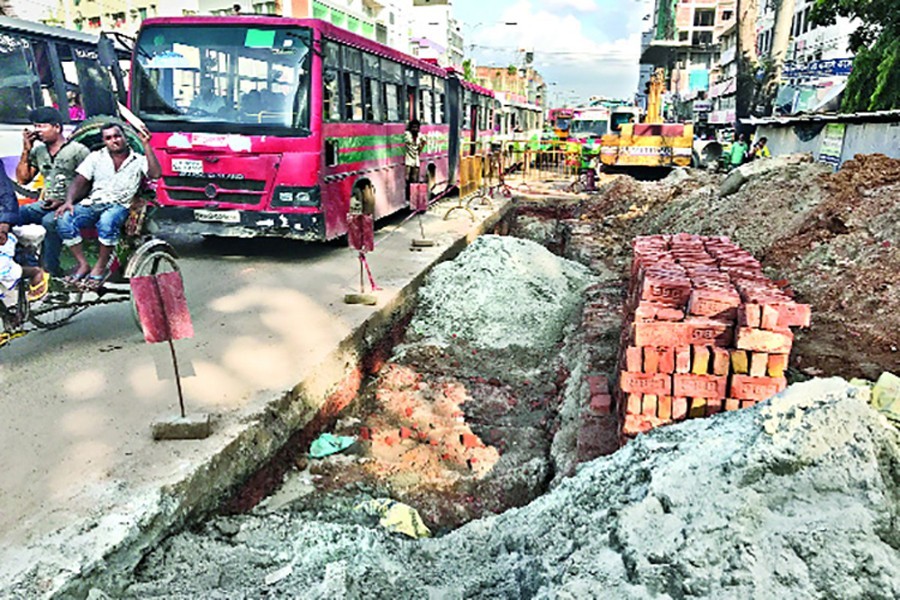The urban specialists have, from time to time, raised the issue of setting up of a city government or similar such body to coordinate the service- providers of the capital city. It has also been mentioned that while the efficiency of the service providers has gone down, corruption in them has increased. Add to it the studies by researchers pointing to the millions of man-hours lost on Dhaka's snail-paced roads while going to and coming back from work. All these coming in the backdrop of international studies pointing to Dhaka's place in the lowest band of liveable cities of the world bring its citizens face to face with some stark choices that have to be made without delay. One of these would be how to invigorate all the service providers into a competent and coherent entity so that service seekers are at least answered in an appropriate manner.
There is a multitude of agencies working in Dhaka supposedly for the satisfaction and happiness of its inhabitants through an efficient management of the essential civic amenities. Quite clearly, their performance falls short of even moderate expectations. There has been a recent row over the quality of drinking water supplied by the Dhaka Water and Sewerage Authority. During rainy seasons underground drains and sewer lines burst due to over pressure and rain water. Street level drains are the responsibility of the two city corporations, which are found overflowing to exacerbate water logging.
Our capital is one megacity that has one of the lowest road-endowments of all. To make things worse, management of vehicular movement leaves a lot to be desired. Leave alone cities of the developed world, neighbouring Kolkata in West Bengal, India, appears to have solved a good part of its problems of road traffic. No doubt, Dhaka is no less vibrant than Kolkata as a big city with its own activities of culture, economy, education, health facilities and others. However, in matters of service provision it appears to be lagging behind on many indices. Air quality in Dhaka has been consistently calculated to be among the worst in the world, a living testimonial to its ever polluting means of transport and the presence of a plethora of brick-kilns around the city. Although power supply has improved in recent years, getting new connections remains not an easy job as yet. There are a lot of other services that involve more than one agency. For the potential consumer and service-seeker, it turns out to be a nightmare of sorts.
All these bring us face to face with the necessity of creation of a unified body or some effective coordination of all service providers. RAJUK with its current mandate and prowess is not such a body. Neither are the two city corporations. Name the proposed new agency `city government' or a `super authority', it must have teeth to make provision of every service unproblematic and attend to every citizen with care. As the country starts boasting of year-to-year economic growth, issues of urban governance must take the front seat, both in matters of efficiency and fight against corruption. A unified body could be given the chance.


